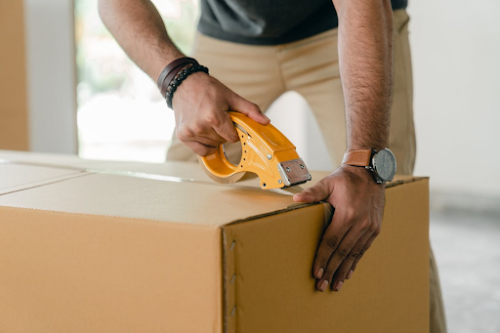
When renovating your home or moving to a different business premise, for instance, you may want somewhere to stash some of your possessions temporarily before you decide what to do with them.
This is where self-storage containers come in handy. But if you’re like many people, it is not uncommon to get confused about what you can or cannot store in a self-storage unit once you rent one.
This article highlights a few things you can put in there, and several items you should even think about stashing in your self-storage container.
What is a Self-Storage Unit?
In the simplest terms, a self-storage unit is a designated space where you can store belongings for up to 30 days at a time without having to pay an annual fee.
If you rent a unit, you’ll have a limit on the number of personal possessions that can be stored in it. The 30-day contract may also be renewable depending on the company you get your storage unit from.
Types of Self-Storage Units
There are a lot of different types of self-storage units available in different areas. As you will notice by searching san antonio tx self storage using selfstoragefinders.com, many of them offer a range of sizes and guarantees, so you can find one that best suits your needs.
While some may limit you to smaller items like televisions and smaller furniture pieces, there are others that take larger possessions like cars.
By design, some common types of self-storage units include the following:
Panels
These are basically large, cylindrical, self-storage pods that can be stacked, and these can be packed with anything from furniture to kitchen appliances and household goods.
Vaults
These are basically secure, heavy cabinets that provide a secure and airtight home for your belongings, but require you to fork out a sizable deposit to reserve one.
Withdrawals
These are affordable storage units often designed for tenants who aren’t able to keep hold of their items for a prolonged period of time, such as victims of domestic abuse, those on certain prescription drugs, or those who simply don’t want to pay the deposits on expensive storage units.
Some types are also designed for specific purposes of clients. A few of these include Drive-up storage, business storage, student storage, vehicle storage, and climate-controlled storage units.
What Can You Store In A Self-Storage Unit?
In a nutshell, you can store in a self-storage unit, any personal, household, or commercial items as long as:
- They fit the available room
- Won’t ruin the unit
- Won’t harm other stored items
- They are not prohibited by law or storage facility rules
Some examples of common items kept in self-storage rooms include the following:
- Furniture
- DIY materials, tools, and equipment
- Children’s toys and toys for adults
- Jewellery
- Mini-refrigerators
- Books on gardening
- Household electronics and Computers
- Filing cabinets
- Bikes and lawnmowers
- The books on your bookshelf
- Christmas decorations
What You Cannot Store in a Self-Storage Unit
While many common household items, as well as furniture, can be kept in a self-storage unit, there are some items you’ll need to keep out.
Some of these items, which you should know when choosing a storage unit include:
- Plants and animals (living or dead)
- Firearms and ammunition
- Combustible or flammable materials
- Hazardous chemicals or waste
- Stolen and illegal goods
As you can already tell from the list, these are mostly items prohibited by the law or the storage facility regulations. Your storage unit provider will most likely provide you with a brief of their rules and regulations in a document at the point of renting.
Common Storage Facility Rules You Should Know
Besides what can and cannot be stored in the facility, most storage unit providers will also have an extra set of rules that the client should follow. For most facilities, the primary rules look something similar to the following:
Storage duration
There’s a limit to how long you can keep items in a storage facility. While the duration may vary from one company to the other, most contracts indicate that storing items for more than 30 days may attract penalties.
Safety
Any items stored in the facility are not allowed to be destroyed.
Proper packing and arrangement
Stored possessions are to be kept in a safe and secure manner. If you are unsure about how your items can be stored in the facility, you need to ask your self-storage provider.
Despite the scare stories often spread online about a bad experience in a self-storage facility, when you take some precautions and keep your storage unit in good condition, you can definitely come out with a happy experience.
Knowing the basics of what you can and cannot store in a self-storage unit will go a long way to keeping your belongings safe and secure.
Interesting Related Article: “The Best Strategies to Keep Your Storage Unit Organized“

